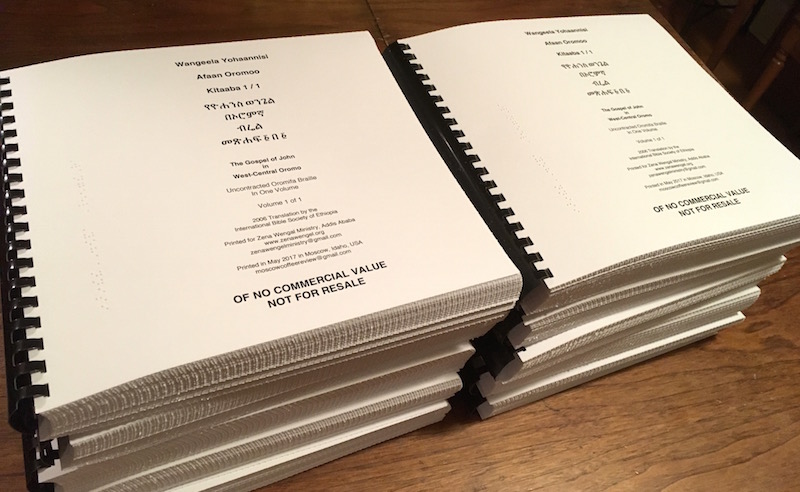I read this over six months ago, took notes, and got distracted before I could sit down and write about any of them. Oh well. Here are my copied excerpts (some quite extraordinary!), without comment.
—
[In modern, contemporary life], the normal processes of maturing through joy and sorrow no longer reach the core of man. Nobody can become a person in a void, but only in relations with other people, and if he plays safe in these relationships remains childish and undeveloped. So in work as in leisure we shun not only superfluous pains, which is right, but growing pains, which is wrong. Jesus on the Cross rejected the drug which would have diminished his agony. Who even understands his rejection today?
p.19
The pious hatred of the Puritans against curses by now has made man impotent to bless. Nobody has the power to bless or to be blessed who has lost the vigor to curse. Our society is so polite that it cannot curse social evils and prefers to blaspheme God instead. He who will not curse the shortcomings of his profession as a lawyer, a teacher, a doctor, a priest, always will have to defend it beyond the health of his soul.
p.24
Admit that chaos, darkness, confusion, are our common heritage, and that the sins of this our heritage can be forgiven. The social chaos cannot become cosmos unless man takes this chaos upon his own mind as his own mental chaos, unless he drops his mask of academic observer and his pride of mental self-sufficiency, usually called objectivity.
p.25
I had two classes of readers before me when I wrote: one the free fighters, men and women between twenty and thirty who struggle with the spirit in the form of the spirit of their own age and time. To them their generation is a secret society, and it has incommunicable tastes, enthusiasms and interests which are a mystery both to its predecessors and to posterity. The other class contains men who have experienced the spirit as the great translator from age to age because they themselves have been drafted for this supreme service.
p.lvi
As in previous millenniums of the Christian story men found and testified and fought for one God and one earth, so now we must find and testify and fight for God’s one time against impatient men’s private plans for history. Schemes to usher in the end of history overnight defy the Christian belief in a dispensation of time, whereby God is taking care of his world from beginning to end.
p.20
Christianity is essentially war in peace: it distributes the bloody sacrifices of the battlefront by an even by perpetual spread of sacrifices through the whole fabric of life. World wars can be replaced by daily wars. The Christian soldier of the future must wage war against the indifference and indolence, the coldness and barrenness, of human relations in the machine age.
p.27
Monasteries and cathedrals were the centers from which to check the un-Christian traditions of the common man. The carnival, maypoles, witchcraft, fairy tales of the average household were stark pre-Christian as late as 1600, and, as the Golden Bough has shown, even much later. Sir James G. Frazer could write that neither the Roman Empire nor the Christian Church had as much as scratched the surface of the life of the common people even to this day.
p.36
Pacifism has spread on the crutches of humanitarianism or it is backed up by the Sermon on the Mount, though I yet have to discover one word of pacifism in this.
p.43
John Dewey never has undergone the depersonalizing influences of watered labor, of the scatterbrain environment, of the split between residence and business district. I, who have suffered from these ills, can well see that they did not sear him. My objection to John Dewey is that he takes his healthy heritage for granted, that he thinks these qualities to be man’s Nature while they are [actually] the fruits of 1900 years of our era, and that he goes on from there as though nothing could jeopardize this assumed “Nature” of Man. Dewey has never a word of gratitude for the powers which gave him the strength and the unity and the wholeness. The thirtieth year of his life coincided with the closing of the frontier…. and so, on his own fundus of Christan standards implicitly lived, John Dewey has erected a complete system of agnostic ethics and morality.
p.44
Under general consent, we were asked to take down this following definition of a citizen: “A citizen is a man who is profitably employed.” In vain, did I protest that a citizen is a man who can either found or, in an emergency, refound his city or civilization. These convinced functionalists thought I was joking.
p.47
Unfortunately, thought is not consecrated unless it resists trends. The truth is something bigger than that which most people are satisfied with. Often, great truth is hated and crucified. This fact refutes pragmatism. That we are not only inside society but also outside of it, ahead of it, behind it, is unthinkable or at least undesirable for Dewey. “Integration,” to him, is God. But in a bad society, it is my duty to disintegrate her still further by taking up arms. The cross says just this. At times we are inside but at others we have to suffer the fact of outcasts. We may have to hold on to old values which our society is drunk with speed and then we appear to be lagging like the fundamentalists. We may have to be ahead of our times, and again we shall be unhappy. The Cross explains war and revolution and decay and disintegration and explains why some sacrifice must bridge the gaps which man’s abuse of his freedom always rips open.
p.48
If we wish to survive the state of helplessness created by pragmatism – helplessness against war, anarchy, decay – we need an antidote by which Interim America may be integrated into the real world of our black hearts and real deserts.
p.53
A myth is a form of mental life which pretends to be deathless; its kernel is always a fixing of the mind on some transient thing which thereby is immortalized. Nothing on earth is good or forever. The myth pretends it to be. In this pagan fragmentation of mankind by myths every community was enclosed in a private time and space.
p.64
Myths arose to conceal death in the past as well as in the future. Any founder of a city jealously cut the roots which connected him with the past. All secular societies have a skeleton in their closet. Even family genealogies usually omit the unpleasant ancestors and tell fairy tales in their stead. Christianity, on the other hand, took the unpleasantness for granted: in place of a pedigree from a mythical ancestor it put original sin inherited from Adam. And resolutely, it began in the midst of time, not in a mythical fog. Against all deathless myths and hopeless cycles the price of a living future is to admit death in our lives and overcome it. This is the supreme gift of Christianity.
p.65
The overthrow of Christian eschatology by the Enlightenment had tremendous repercussions. No people can live without faith in the ultimate victory of something. So while theology slept, the laity betook itself to other sources of Last Things. What else could a layman do during the erratic brainstorms of the scholars? Man cannot live on the latest scientific news. He needs complete faith, hope, love. Accordingly, while liberal theology ignored the existence of such radical forces in human life, men like Karl Marx and Friedrich Nietzsche kept the flames of eschatology alive.
p.70
Modern man is not so much godless as polytheistic, and therefore pagan. His life is split between many gods – or “values,” as it has become fashionable to call them. “Art, science, sex, greed, socialism, speed – these gods of our age devour the lives of their worshippers completely.” “There are many questions and many answers. But none of the multiplex deities … can enslave all the elements of our being … Science is too severe a god for children. Venus abdicates her authority over old age. Socialism annoys the man of sixty, and gree is hardly conceivable to a young person. The gods pass. When the individual realizes their passing, their unceasing change, he is converted to God – the living God who invites us to obey the ‘unum necessarium,’ the one thing necessary and timely at every moment. This man discovers his complete liberty … because the God of our future and our beginning is superiour to the gods he has put around us in the short periods of our conscious efforts.”
p.96
Each generation had, and still has, to be introduced to the whole painful process of rediscovery. Hence the Church has acted like an immense sponge, sucking up all childish approaches toward understanding, and deterring no one who was of good faith and on the road and still alive. No pagan, native, primitive first step was rebuked as long as group or individual remained in communion with teh complete truth and its guardian, the Church. As a result, rationalists – who are a large poart of the “world” in our day – are able to see this sponge character of the Church, but not the central truths toward which it drew the pre-Christian approximations which it absorbed. So rationalists reduce Christinaity to a mere patchwork of prior sources, and identify a literal adult belief in the Creed with this or that childish state in its own understanding.
Truth, however, is only in those experiences that can be expressed by various ages in various ways. Even in mathemeatics the same truth recurs in new applications and in very different forms of statement. So legends like Santa Claus are not lies when told to children that they may understand the workings of the Spirit among us – as long as the legend waits to be told again, in appropriate terms, to the adolescent, the man, the father, the community leader. To omit the legendary form of truth is to suppress truth. As a human being, I need legend, the myth, the ritual, the poem, the theorem, the prophecy, the witness, the sermon, every one of them. The four Gospels give a model example of this rule that one truth must be expressed in different ways for different times of life. and that the whole truth is conveyed only on several such levels together.
p.99
In the Crucifixion, with the accompanying darkness, rending of the curtain in the Temple, etc., that which is to happen finally has happened once already; and for the faithful the second coming of Christ as Judge really began with his first coming. The Crucifixion judges us all, because we know that we would have behaved like Pilate or Gamaliel or Peter or Judas or the soldiers. The Last Judgement will make known publicly what those who have died with their First Brother already experience daily, that our Maker remains our Judge.
p.103 footnote
These are the powers of faith, love, and hope, which bridge the abysses inside of “Man” whom we little men have to represent through the ages. It is essential to realize that they come from God rather than the human will. The Greek and Hebrew words for faith mean God’s faithfulness and trust. Our belief is but the poor reflex of God’s faithfulness to all of us together. The masses are plunged into night when faith is made dependent on human will, instead of meaning that God holds us in the palm of his hand. Similarly love and its liberty are too often confused with will, even by theologians. Love and will have as little to do with each other as a wedding ring with a cannon. Will is not free, for it must struggle for life; but love is free, because it can choose death. This is the wrong doctrine of humanism which classifies “love” with “will”.
p.111 (some paraphrase)
Each form of mission and conversion both prepares the way for, and is renewed by, its successor. Christianity had to conquer the false gods before it could conquer the false, i.e. divided, earth. But the spirit moves on, and old forms of life can stay alive only as long as new ones unburden them from the stagnation that comes with repetition. Toward the end of the first millennium true spiritual growth of the Church gave way to sheer quantitative expansion, as kings converted peoples by fire and sword and whole tribes accepted Christianity merely at the command of their chieftains. This meant that the next millennium had to fight the paganism which consequently remained in men and institutions that had become nominally Christian, and in lands that had lapsed again from Christianity. Hence crusades and reformations had to supplement the older forms. Today crusaders and reformers are commonplace; they have cheapened their role by dabbling with insignificant problems. They will remain with us, for no Christian way of life is wholly destroyed by time; but they cry for renewal by fresh incarnations of the spirit.
p.120
Though I believe that the Church is a divine creation and that the Athanasian Creed is true, I also believe that in the future, Church and Creed can be given a new lease on life only by services that are nameless or incognito. The inspirations of the Holy Spirit will not remain inside the walls of the visible or preaching Church. A third form, the listening Church, will have to unburden the older modes of worship by assembling the faithful to live out their hopes through working and suffering together in unlabelled, undenominational groups, thereby to wait and listen for the inbreak of a new consolation which shall redeem modern life from its curse of disintegration and mechanization. By this penance we may hope to rescue our hymns and Creeds and historic Churches from destruction in times to come. Christianity itself may rise from the dead if it now discards its own self-centeredness.
p.128
In the beginning there was neither mind nor matter. In the beginning was the Word. St. John was properly the first Christian theologian because he was overwhelmed with the spokenness of all meaningful happening.
p.129
Looking back into the past, we can see that whole streams of Christian language have cooled off into geological stratifications. The languages of saints and martyrs, crusaders and pilgrims, no longer move men’s hearts. Neither the ritual of the mass – that flawless creation of the first millennium – nor the sublime language of Canaan in the Protestant Bible suffice to create peace between men today. Yet we also see that when the bread of life has gone stale, it has been refreshed again and again with new transubstantiation. These transformations of living speech-in-action are the real sacrament of the Spirit, and if we walk humbly under our bankruptcy today, we may hope to hear the Word spoken once more.
p.130
A Christian may become a full-grown adult again instead of a Sunday school boy by identifying himself with his schismatic brothers. Unless he can do this, he has not grown up.
p.143
All our acts have a dual aspect, one of freedom, one of causation. The world sees that I marry this girl “because”; but I must say to myself that she accepts me “despite.” Unless a man knows of both interpretations of his acts, he cannot be successfully married.
p.149
The first sentence of the great Gregory VII’s classical exposition of the Papacy’s rights read like a refutation of all national theory of the Church: “The Church of Rome was founded by God alone” (supplement: not by an act of politics).
p.150 footnote
Calvin himself, by the way, resisted the temptations of mere curiosity, and lengthy as his own theology was, it was restricted by him to the necessary. When Socinus pestered him with questions, he wrote: “If you wish to know more, ask somebody else. For you shall never succeed in your quest of making me from eagerness to serve you transgress the boundaries placed on our knowledge by the Lord.” (Opera ed. Reuss, 1549 Dec. ep. 1323, vol. XIII, 485.)
p.153 footnote
Our ends certainly do not sanctify our means. But the reason is that our ends never sanctify anything.
p.163
The story of Christianity is the penetration of the Cross into more and more fields of human existence. Something of the extent to which this penetration has taken place can be seen in the way the word “crucial” has invaded our scientific, artistic, political, and social vocabularies.
p.165
Since the four fronts [forward, backward, inward, outward] differ in quality and direction they are ultimate and irreducible dimensions of human existence, but the mind with its imperious urge to relate and unify everything is tempted to over-simplify life and deny the Cross of Reality by reducing the four to one. This is the main source of viciously one-sided fallacies about man and society – sentimentalism and mysticism which engulf everything in the inner life of feeling, utopian radicalism which would bring in the Kingdom of God by violence, reactionary romanticism which dwells wholly in the feudal past, cynical rationalism which reduces man to a mere object of natural science.
p.169
The decadence of an older generation condemns the young to barbarism. The only energy that can fight this evil is faith. Faith, properly speaking, is always belief in some future, a world to come.
p.173
When a man withdraws from the struggle, he removes a cornerstone on which the whole structure of mutual aggression rests. The self-annihilation of one particle of the frightful will to live mitigates the pressure between all. Most of us have found that some degree of restraint, of asceticism, is a way of making life less terrible. Actions beget reactions. Do not react, and you lessen the conflict, undo the fighting.
p.177
Thousands of college people – professors, their wives, boys and girls – are trying to solve their problems by writing books, but they have forgotten the equally important problem of creative silence. Respect for the question, when to be creative and when not, is so rare that most authors simply go on thoughtlessly producing book after book. We must cultivate the courage to stay silent for a while among the people with whom we live, so that when we do speak our voice will have become theirs.
p.180
The very existence of any science proves the existence of creation instead of causation, of fellowship instead of bureaucracy, of authority instead of tyranny, of service instead of exploitation.
p.194
The agencies of adult education misdirect the free times of the masses unless they allow every man who emerges from his mass existence, to fight the devil.
p.206
What can Einstein and a Ranger say to each other? The cleavage between their official philosophies has been taken for granted. We have left peace-time thinking and war-time action completely unreconciled. Thinker and warrior have no common history. If we could create it, the community spirit would be reborn.
p.215
It is true that a man’s physical life span is measured from birth to death. (The Church never did this but counted from baptism to funeral.) From this simile, man concludes that his mind is his lifetime companion, progressing also from birth to death. However, while this life stretches from the cradle to the grave the life span of an inspiration reaches from the middle of one man’s life to the middle of the life in the next generation. Thus the difference between our physical and mental existence is expressed in the difference of their periods or rhythms. As carriers of physical life, we feel our life to be an unbroken sequence. As carriers of valid thinking, as scientists, rulers, writers, parents, experts, officers, we can’t have peace if we try to imprison this thinking process within us or if we thing of it as synchronized with our own physical life-span.
p.220
(The despair of trying to sync up everything inside your own lifespan.)
The obstinacy with which psychology has studied the mental processes within the individual is no proof that its method is fruitful. The dream of a self-taught, self-ruling man is a bad dream. The measure for teaching and ruling cannot be found from the abnormal compression of these processes into one individual. Historical man is taught by others, and rules others; and in these relations, he is compelled to realize himself.
p.222
[Pacifists] are right when they abhor war as the order of the world; it certainly is its disorder. The world was created for peace. But they are wrong when they do not add that the act of creating the world is a perpetual act. What we call the creation of the world is not an event of yesterday, but the event of all times, and goes on right under our noses. Every generation has the divine liberty of recreating the world.
p.224
The young first must be allowed to feel, to scent, to presage, to fight for themselves, to quench evil, to protect the world before we can speak to them theoretically. The old must think out lucidly that which the young have felt or can feel about the future. “We may conceive humanity as engaged in an internecine conflict between youth and age. Youth is not defined by years but by the creative impulse to make something. The aged are those who, before all things, desire not to make a mistake. Logic is the olive branch from the old to the young.” (Alfred N. Whitehead, The Aims of Education, 1929, p.179)
p.226
The collaboration of soldiers and thinkers must be the central article of any society’s constitution.
p.227
“Don’t get excited” is no wise counsel to young men. If they no longer can get excited the world decays, just as much as when the old men can’t keep cool.
p.227
We all know that a father’s mind should enter into the impulses of his son. That is the reason why nobody may call himself a father, by mere physical procreation. Fatherhood is rethinking the world in the light of one’s children. Why is God so inexhaustibly original? Because he rethinks the world for every generation of his children.
p.231
Peace cannot be organized when the audacity of the warrior is not invited. And as the integration of the soldier’s generative force into the community had not been achieved after pioneering [of America] was over, the two world wars were indispensable.
p.232
The hierarchy of importance is unknown in the academic community; the unpaid laundry bills of Walt Whitman may be given as much importance as his “Ode for Lincoln.” The good taste of the academic mind is the only barrier against such nonsense; yet it is true that the mind of mere peace-time thinking has no way of protecting itself against unimportant and superfluous questions. Everybody knows how new questionnaires are invented and new studies are manufactured from sheer curiosity or unemployment of the mind.
p.236
The fear of the custodians of the Christian faith, that the spirit of the time is wrong, is as useless as the pride of the men of the world that the spirit of their time always is right. This spirit must be made to serve. God is the father of all spirits [thoughts and actions].
p.243






